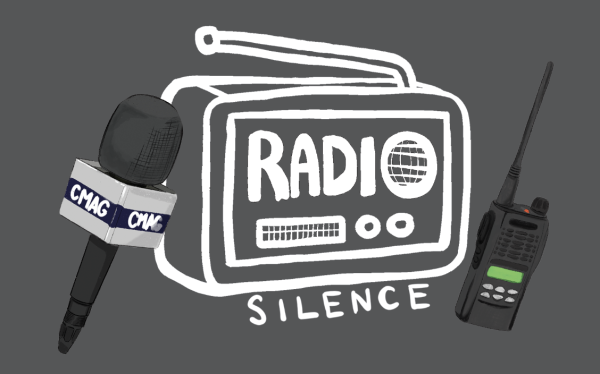IX
Title IX has come a long way from its origin in 1972 but has it come far enough?
Content warning: This article contains mentions of sexual harassment and assault, which may be triggering for some. If you’re looking for someone to talk to, call 1-800-656-4673 to reach the National Sexual Assault Hotline.
Palo Alto Unified School District (PAUSD) has garnered an outside reputation as a consequence of its past Title IX scandals. After a Palo Alto High School principal’s resignation over misconduct allegations in 2014, a 2015 federal investigation of the district’s Title IX office due to violations of sexual harassment law, a Gunn High School student’s $150,000 settlement over the mishandling of a sexual harassment case in 2019 and an abundance of sexual assault allegations and frustrations with the district revealed through social media in 2021, some students are wary about the district’s ability to handle Title IX complaints, especially now that the policy has undergone a recent overhaul.
In 2020, PAUSD’s Title IX policy was changed following an overhaul of federal reforms made by Trump Administration Education Secretary Betsy DeVos with the ultimate goal of giving more power back to sexual assault survivors, according to PAUSD Title IX coordinator Robert Andrade. Each presidential administration updates the policy, changing the procedure schools must adhere to while investigating a Title IX case.
“What [the reforms] did was include more due process rights, which included providing respondents the ability to see evidence that’s put against them,” Andrade said. “It also created a whole host of checks and balances in the Title IX process. In essence, it made the Title IX process longer.”
Despite the new regulations making the case process longer, there were no added protections for the complainant. Many students who file a complaint experience extreme trauma while working on the case, and often need professional help.
“I think that if someone is filing a case they should have a mental health advocate with them the entire time that’s notified of everything and is that every single meeting,” an anonymous Paly student who has filed a Title IX complaint said. “It can be really stressful and can bring a lot of traumatic things and sometimes things that are in the best interest of the case are not in the best interest of the victim.”
For some, what was intended to provide more transparency ultimately complicated the reporting process and made the prospect of obtaining help less attainable to sexual assault survivors.
“The 2020 regulations required individuals who are filing complaints to name specific individuals who did misconduct against them,” Andrade said. “And that, in some ways, may have restricted other people from filing complaints. Sometimes you might not know who the individual who harassed you is. And sometimes those interactions and those negative experiences are so short.”
As the time taken to process a complaint has extended, students who file cases can feel their well-being is seen as an afterthought in the grand scheme of the case.
“I think the school didn’t really realize how much support I needed,” the anonymous student said. “It felt like they weren’t as worried about me and my well-being compared to the outcome and progression of my case, and how it would affect the school’s reputation if it were to become more public.”
To increase the amount of support available to students, in 2018, Paly alumnae Alexa Aalami and Katherine Buecheler founded Responsive Inclusive Safe Environment (RISE) Student Task Force, a club promoting consent education and campus safety.
“The purpose of [RISE] was to create a bridge between adults and students in our community,” Buecheler said. “To find solutions to this relentless issue.”
The had noticed that lack of education on campus, as well as disrespect towards sexual assault.
“At the time, sexual violence prevention efforts at Paly consisted of a short, 30-minute ‘Bullying and Harassment’ presentation on Safe & Welcoming Schools Day and was reviewed in Living Skills, which most students took as upperclassmen,” Aalami said.
“Before we started RISE, there was just a lot of joking and a lack of respect for the topic,” Buecheler said. “And I think that was something that really shook [me and’ Alexa off, like I’m looking around and no one cares about this huge issue that has affected me and [my] friends.”
Unfortunately for many survivors, their reports may never even be investigated due to a list of formalities that PAUSD is required to adhere to, beginning with making sure it fits one of the pre-existing defintions of a Title IX case.
“There are plenty of people who can file complaints as Title IX, but there are not many complaints that come out as Title IX, the reason being [that] Title IX requires specific things,” Andrade said. “One, the conduct has to meet the definition of Title IX, and there are three main definitions of Title IX.”
Andrade shared that these definitions include: quid pro quo (when a district employee offers a benefit to a student in exchange for a favor or sexual act), a hostile education environment (when harassment is imposed on a person based on sex, gender identity or sexual orientation so severely that a student is unable to remain in their educational environment) and criminal definitions (when someone is a victim of stalking, sexual violence, sexual assault or dating violence)
Before being classified as a case, reports must also be verified to have happened either on school grounds or at a school-sponsored event or activity, although this doesn’t guarantee that the conduct could be covered under district policies.
“In many instances, a lot of conduct happens off campus, and that conduct actually gets complaints dismissed out of Title IX,” Andrade said. “As a Title IX coordinator, federal law requires me to dismiss that.”
The final qualification that a report must hold is that the person accused of engaging in negative conduct must be a student or district employee.
“If you have a student who is alleging that they were assaulted or harassed by a student from a different district, we have no control over that, and Title IX is not covered under our district,” Andrade said.
The federal reforms introduced at PAUSD are not the only recent changes implemented in the district’s Title IX office. Following a 2014 Untied States Department of Education Office for Civil Rights (OCR) complaint, an investigation was conducted on the district, which came to the conclusion complaints were not being handled properly as per the Title IX amendment.
The OCR investigation revealed a set of inadequate practices at the district’s Title IX office.
“OCR came in and told the district that [PAUSD] didn’t have set procedures for handling TITLE IX cases, ‘you didn’t have a centralized intake system,’ ‘you didn’t have a way of documenting or recording these incidents in a singular and concise place that’s organized,'” Andrade said. “And your way of conducting outreach is completely flawed, meaning that you didn’t get students who are affected fast enough. You didn’t provide them with the services that they need quick enough. And you didn’t do a whole host of things that could have reduced the emotional burden and trauma that either the complainant or the respondent may have faced in the situation.”
Assistant principal Jerry Berkson said that the experience Paly went through five years ago has helped them become more knowledgeable and prepared to handle Title IX cases.
“When you go to admin credential school, they don’t cover any of this type of stuff,” Berkson said. “So when everything happened last time, we weren’t prepared for it.”
Former PAUSD Title IX coordinator and current Los Gatos-Saratoga Union High School District Title IX coordinator Megan Farrell observed strict adherence to OCR guidelines during her time at PAUSD.
“While I was in the position [of PAUSD Title IX coordinator], we were under a very strict resolution agreement with the Office for Civil Rights that detailed how we had to handle each matter, and we produced all of our discrimination/harassment cases for OCR to review,” Farrell said. “So I am confident that we had a compliant process at that time.”
Following the intervention within OCR Andrade and PAUSD staff are focused on creating a process that is accessible and understandable for students.
“We have taken a student-driven approach at trying to address the issue within our own federal requirements and state requirements regarding Title IX to make the process even better,’ Andrade said. “Can [the process] improve? Absolutely. And my goal for as long as I’m here is to continue to get student input to move that forward.”
Despite the difficulties many survivors face as they try to report their cases to the district, students at Paly have created resources to try to support their peers.
“Acting PAUSD Superintendent Karen Hendricks initiated the RISE Task Force of district stakeholders with the ultimate intention of it being student-led,” Aalami said. “Katherine and I oversaw this transition, recruiting students and serving as liaisons between students and administration.”
Buecheler and Aalami started meeting with administrators to develop a consent education curriculum that incorporated student perspectives into the pre-existing material. Both Aalami and Buecheler noted the support and help they received from the district while developing the new curriculum.
“There was a lot of encouragement,” Buecheler said. “I think [the] administration did appreciate this move because a lot of the frustration in our community came from no one knowing how to take a move forward.”
Aalami agreed, that the administration at Palo Alto High School positively encouraged the start of RISE.
However, just as the pair finished developing and editing their lessons, they faced a setback.
“I just remember going into the former principal’s office and him telling us that we didn’t have time to do every session that we had planned,” Buecheler said. “And Alexa and I walked out and were like ‘Are you kidding?’”
Ultimately, the COVID-19 pandemic prevented Aalmi, Bucheler and the rest of RISE from presenting their curriculum as soon as possible.
“When COVID hit we didn’t have much time to kind of fight back on that,” Beucheler said. “Everything was paused and it was difficult to know where to take the next step.”
Current RISE co-president and junior Bella Nguyen has been able to continue the club’s mission and has helped bring the content Aalami and Buecheler created to classrooms at Paly.
“We [presented] last year for the first time and it was pretty successful,” Nguyen said. “This past year, we also did an event called The Senior Panel where we had Paly alumni come back to Paly via Zoom to meet with our current senior class. They talked about their experiences in college and the environments they were surrounded with and how to manage that and stay safe in terms of sexual violence.”
These lessons, which were presented to freshman, sophomores and juniors last year, are an example of the support and resources Paly provides to help reduce sexual harassment and assault in order to create a better and safer school environment.
“We do have [more] education compared to other schools in the country, which is really sad, but I do appreciate the effort that does [get] put into it,” Buecheler said.
According to Berkson, district administrators are now better equipped to handle Title IX cases, even though the outcomes are not always favorable.
“I’d say we’re pretty darn prepared for [the] process,” Berkson said. “Whether the judgment is positive for the complainant or not is another story. That’s decided at a higher level because decisions are made based on a law.”
The very long process of reporting Title IX cases can be traumatic for survivors, which is why some cases are never completed.
“We get complaints where people will make an initial concern but not sign up for the official complaint,” Berkson said. “The complainant has gone through something traumatic, and it’s tough for that [to] follow through.”
An anonymous Paly student who filed a complaint said that the support she received from the school was only offered once, even though she would have benefited from consistent support. She believes that having a mental health advocate brought in from outside PAUSD would help survivors through the extremely stressful and traumatic process.
“There’s no one to say ‘I know you’re right. I believe you,’” the anonymous student said. “It feels like your word isn’t enough.”
According to Andrade, The federal and legal nature of Title IX policy doesn’t allow for an individualized approach to handling cases, which could help mitigate some of the intense emotions during the process.
“I feel like reporting a case right now is treated kind of like a ‘one size fits all’ type of thing,” the anonymous student said. “I don’t really think that’s the case. I think that the right way to handle a case varies based on the person who’s reporting it and what they want and need from the school.”
When asked if she would go through the process again, she said, “Personally, I would never do it again. Regardless of the outcome, it’s not worth it for me [because it] makes you feel really, really bad.”
One thing Paly students can do is offer their support to peers going through a traumatic time.
“The number one priority is to be supportive and be someone that kind of like lifts a weight off their shoulders, not forcing upon any kind of opinion or thing they need to do, because it’s a super overwhelming situation and it can take a lot of time to process and understand what’s best for you,” Buecheler said.
Simply listening can make a world of difference.
“Listen, validate how they feel and outline resources accordingly,” Aalami said. “Ultimately, they will decide how to proceed and you as an ally can offer your non-judgmental support.”
Print Issue
Please click on the three vertical dots on the top right-hand corner, then select “Two page view.”

2021-2022 - Staff Writer
2022-2023 - Editor-In-Chief
I joined C mag because I saw it as a really cool way to learn more about the Paly community,...

2021-2022 - Staff Writer
2022-2023 - Editor-In-Chief
I joined C Mag because I really enjoy design and arts, and the creativity it comes with it....

2021-2022 - Staff Writer
2022-2023 - Editor-In-Chief
I joined C Mag because I love art, culture, and music, and I wanted to write about them! ...

2021-2022 - Staff Writer
2022-2023 - Editor-In-Chief
I joined C Mag because I like the magazine's focus on design and feature stories. My favorite...











